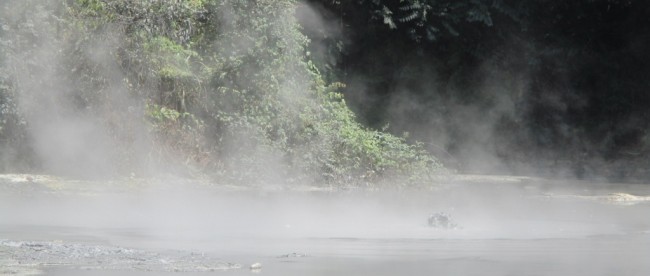The shift towards oversupply gives consumers the opportunity for a broader influence over the commodities market. The drop in the price of energy has allowed the environmental lobby to introduce restrictive financial and political influence over the coal industry. The Kimberly Process was introduced some years back in response to “blood diamonds”. The USA securities and exchange act (Dodd-Frank) has been lobbied to similarly introduced trading restrictions on Congo “conflict minerals”. Indonesia’s formal mining industry is well documented to be a socially responsible industry. However Indonesian Government’s control over the informal mining sector needs to be improved, or risk potential future NGO pressure to incite international trade restriction on Indonesia.
Clause 1502 of the recently USA approved “Dodd – Frank wall street reform and consumer protection act” sets out regulations in relation to conflict minerals in the Congo, and adjoining countries. This act is specifically designed to reduce extreme levels of violence as associated with the production and trade of “conflict minerals”, columbite-tantalite, cassiterite (tin), gold & wolframite. The act, in relation to the USA Securities and Exchange Act of 1934, is in response to the NGO’s “Enough Project” lobbying. This act has no direct bearing on the Indonesian mining situation; however the act represents a first world trend to link international social issues with commercial trade.
A similar social awareness trend is underway within Indonesia, wherein there is more front page news about fatalities in uncontrolled peoples mining in Sulawesi (gold), Java (gold), Banka-Billiton (tin) and sand mining throughout Indonesia. Aljazeera is a leading international TV news media that has looked at some illegal mining operations in Indonesia, as well as the Congo conflict minerals. Fortunately the illegal mining operations in Indonesia are typically not presently associated with the extreme violence that the Dodd- Frank act defines as armed groups; A) physically control mines or forced labor of civilians to mine, transport, or sell conflict minerals, B) tax, exhort, or control any part of trade routes for conflict minerals…C) tax, extort, or control trading facilities, in whole or in part…. Certainly there have been occasions in the past where the Indonesian military, police, along with armed gangs may have provided “security & trading opportunities” for illegal mining, but typically such workers were free to come and go.
The Dodd-Frank Act requires the submission of reports on strategy to address the linkages between human rights abuses, armed groups, mining of conflict minerals, and commercial products. Indonesia may apply this trend towards public concern for greater transparency over illegal mining to similarly publish 6 monthly reports on illegal mining in Indonesia. This may be a cost benefit to Indonesia, particularly as the 9 November 2015 news reported “$4.2b loss from tin mining underscores need for stronger regulation, Minister says”.
The Indonesian mining law 4/2009 is to be revised, and was scheduled to be tabled in parliament in 2015, however it looks like this is delayed. Some people within the various exploration and mining professional associations are concerned that some of the regulations on Community Mining Articles are not being properly implemented, bringing disrepute upon the broader formal mining community.
Law 4/2009 Article 73 states that ;
1) District / City Government is to implement guidance in exploitation, mining technology, as well as capital and marketing in an attempt to increase the capabilities of community mining efforts.
(2) District / City Government is responsible for technical safety at community mining efforts, including:
-
occupational health and safety;
-
environmental management; and
-
post-mining.
(3) In order to implement the technical safety as stated in paragraph (2), the District / City Government is obligated to appoint a functional officer as a mining inspector pursuant to the provisions of laws and regulations.
(4) District / City Government is obligated to record production outcomes and all community mining activities that are located within their territory and report this periodically to the Minister and the relevant Governor.
Despite the report of hundreds of accidents and fatalities, there seems to be no public news of District/City government “functional officers” being jailed or formally held accountable, as is the potential for safety officers (Kepala teknik) of private mining companies.
Indonesian mining industry is well advanced with the accountability of its formal mineral production. The Dodd – Frank Act is an encouragement for Indonesia to continue with responsible mining, and to further develop and monitor the community / illegal mining industry.

